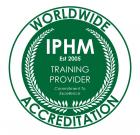The Saturated Fat Dilemma
6th Feb 2017
How often do we take nutrition advice from the media, only to find that their good food of the moment becomes a bad food later on, and vice versa? A study of saturated fat, done over fifty years ago, determined that it leads to high cholesterol and the risk of heart attack, even though investigations pointed to flawed results
The benefits of saturated fat
Saturated fat is essential for a healthy liver, a strong immune system, strong bones, the healthy function of the lungs, brain, nerves and cardiovascular system, the efficient absorption of calcium into the bones, the building of hormones and many other biological processes.
Saturated fat also assists in the proper use of the essential fatty acids (Omega-3) that we eat. Omega-3 fats are efficiently retained in the body tissues when the diet is rich in saturated fats. Omega-3s are responsible for building new body cells, reducing inflammation, and assisting oxygen transport, kidney function, blood clotting, nerve function, hormones, brain health and joint flexibility.
The downside of low-fat foods
When fat is removed, extra quantities of sugar, salt and additives are required to make the food taste normal. Over-consumption of these can lead to health problems, such as type 2 diabetes, fluid retention, heart disease and more. Some food additives are not safe, and frequently get withdrawn. Research the harmful properties of aspartame and other artificial sweeteners which are abundant in low-fat food.
The fat to avoid
Trans-fat was produced in the 1980s to replace saturated fat. It is used to make food appealing, tasty, the right colour and consistency, and last longer. It has been chemically altered by a process called hydrogenation. It raises bad LDL cholesterol and triglyceride levels in the body, adding to the risk of cardiovascular disease, and it strips the good cholesterol which is needed to keep arteries unclogged. It is abundant in processed food, calorie-controlled food, low-fat food and refined vegetable oils
Foods with healthy fats
Saturated fats include pure non-processed meats, fish, nuts, seeds, avocados, olives, olive oil, coconut oil, dark chocolate, eggs, cheese and full-fat yogurt. Add some Omega-3 fatty acids such as green leafy vegetables, cabbage, seaweed, beans, wild rice, squash, herbs and spices. Then snack between meals on berries, mango and melon. As well as healthy fats, all these foods provide vitamins, minerals, carbohydrates, proteins and fibre - everything needed for a nutritious, balanced, attractive and satisfying diet.
Copyright © 2017 Brenda Martin





